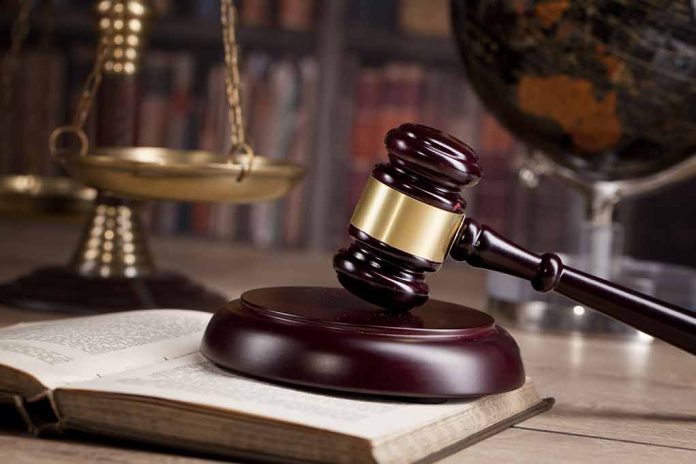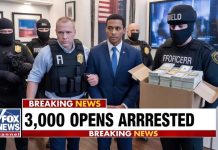
Washington D.C. recently witnessed a significant court decision affecting presidential authority and the future of special counsel dismissals.
Key Takeaways
- The appeals court supported Trump’s decision to dismiss Hampton Dellinger, highlighting presidential power controversies.
- The D.C. Circuit Court of Appeals paused a lower court ruling favoring Dellinger.
- Trump’s administration views protections for special counsels as unconstitutional.
- Dellinger’s lawyers argue presidential removal powers could undermine whistleblower protections.
Washington Appeals Court’s Landmark Decision
The appeals court in Washington ruled in favor of President Donald Trump, allowing the dismissal of Hampton Dellinger as head of the Office of Special Counsel. This ruling paused an earlier decision by a lower court that had found the removal “unlawful.” The D.C. Circuit Court of Appeals—featuring judges appointed by Presidents George HW Bush, Barack Obama, and Trump—supported the president’s authority to fire Dellinger, intensifying debates on executive power.
Dellinger, appointed by President Joe Biden and confirmed by the Senate in 2024, has vocalized opposition to Trump’s decision, claiming the removal was part of an effort to reduce federal oversight. Asserting that a special counsel can only be dismissed for inefficiency, neglect of duty, or malfeasance, Dellinger has pursued legal action to challenge his termination.
“As this Court observed just last Term, ‘Congress cannot act on, and courts cannot examine, the President’s actions on subjects within his conclusive and preclusive constitutional authority’ —including ‘the President’s unrestricted power of removal with respect to ‘executive officers of the United States whom [the President] has appointed,’” explained acting Solicitor General Sarah M. Harris.
Legal Implications and Future Challenges
The Office of Special Counsel safeguards federal employees and investigates whistleblower retaliation. Dellinger’s removal has led to a myriad of questions about the role and independence of such watchdog agencies. Trump’s administration argues these protections are unconstitutional, emphasizing the president’s broad power to replace leaders of independent agencies. This assertion aims at controlling executive appointments, disregarding previous understandings of regulatory agency autonomy.
Lawyers representing Dellinger argue that such executive power could seriously hinder the office’s function to protect whistleblowers. Following a ruling by U.S. District Judge Amy Berman Jackson reinstating him, Dellinger is prepared to appeal to the U.S. Supreme Court, challenging the current appeal court’s decision.
Impact on Federal Oversight and Government Accountability
Dellinger’s dismissal is part of Trump’s broader strategy to reduce federal oversight and dismantle watchdog agencies. As public scrutiny surrounds this matter, Dellinger’s efforts to reverse Trump’s firing of thousands of probationary employees remain uncertain. Regardless of the outcome, this case underscores crucial debates on executive power and the essential role of independent agencies in maintaining government accountability.
President Trump’s actions and this court ruling have reignited discussions about checks and balances within the U.S. government, focusing on the intricate dynamics between executive power and independent oversight. As these legal battles progress, they will likely yield long-term implications for presidential authority and the function of watchdog agencies in the United States.
Sources:
- Trump can remove head of federal watchdog for now, appeals court rules
- Appeals Court Unanimously Allows Trump to Fire Special Counsel – Newsweek







